Sorting skills Extra Challenge Worksheets for Ages 3-9
5 filtered results
-
From - To
Unlock your child's potential with our "Sorting Skills Extra Challenge Worksheets for Ages 3-9." These educational worksheets are designed to develop critical thinking, organization, and categorization skills in young learners. Featuring fun, engaging activities that gradually increase in difficulty, your child will master sorting by shape, size, color, and more. Perfect for both classroom use and at-home practice, our worksheets provide a great way to enhance learning and prepare kids for advanced educational challenges. Foster a love for learning and help your child succeed with these exceptional sorting skills worksheets. Download yours today!
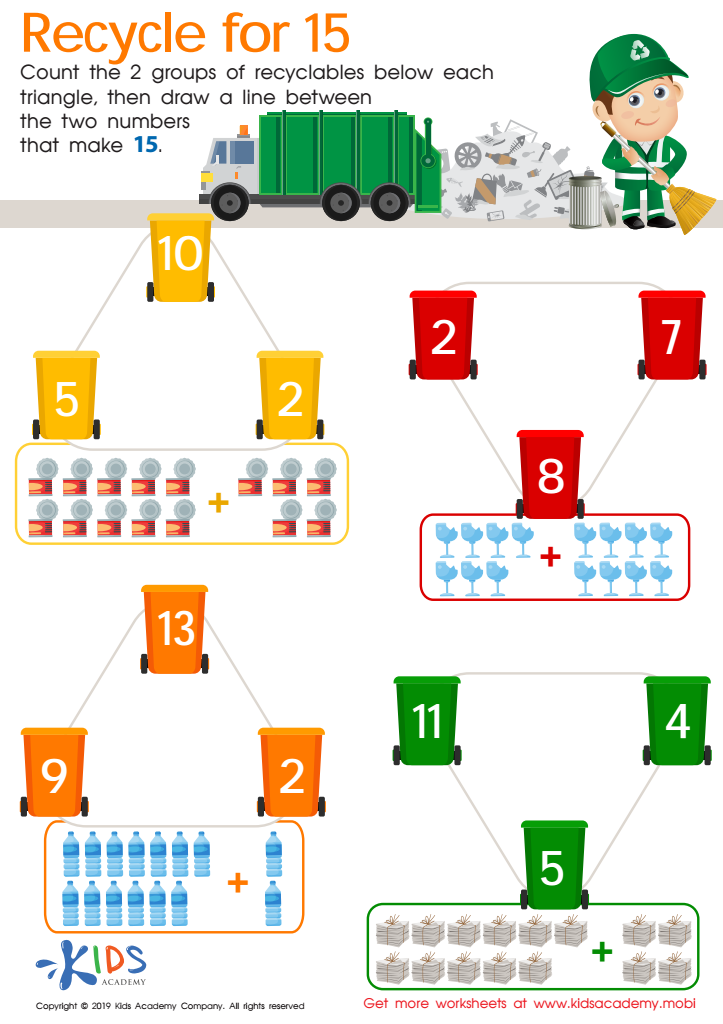

Recycle for 15 Worksheet
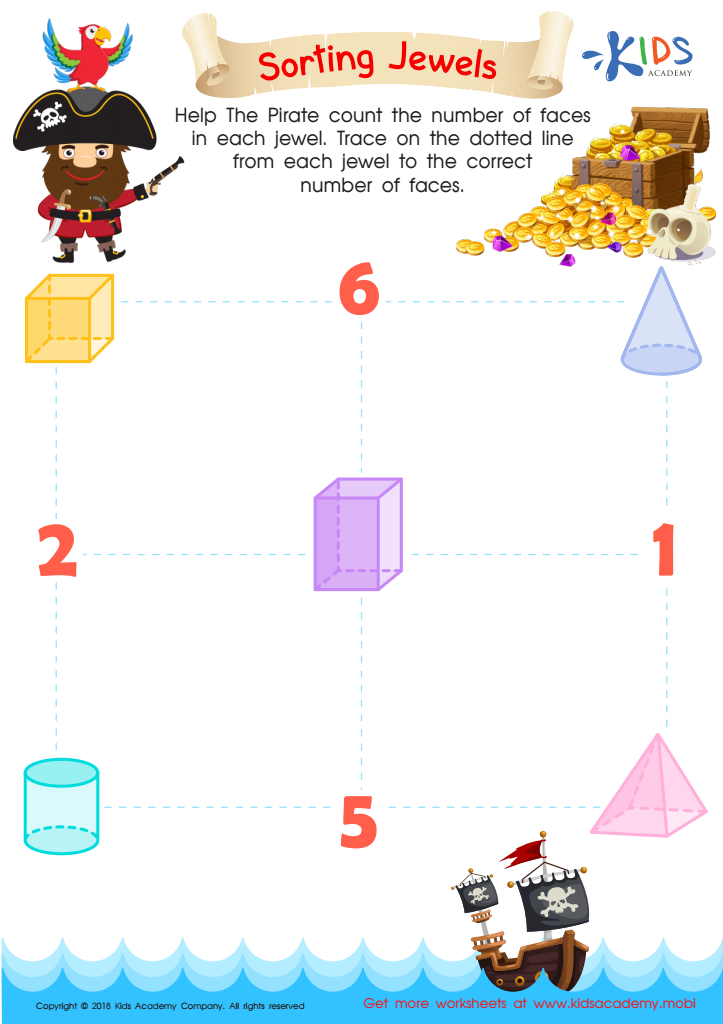

Sorting Jewels Worksheet
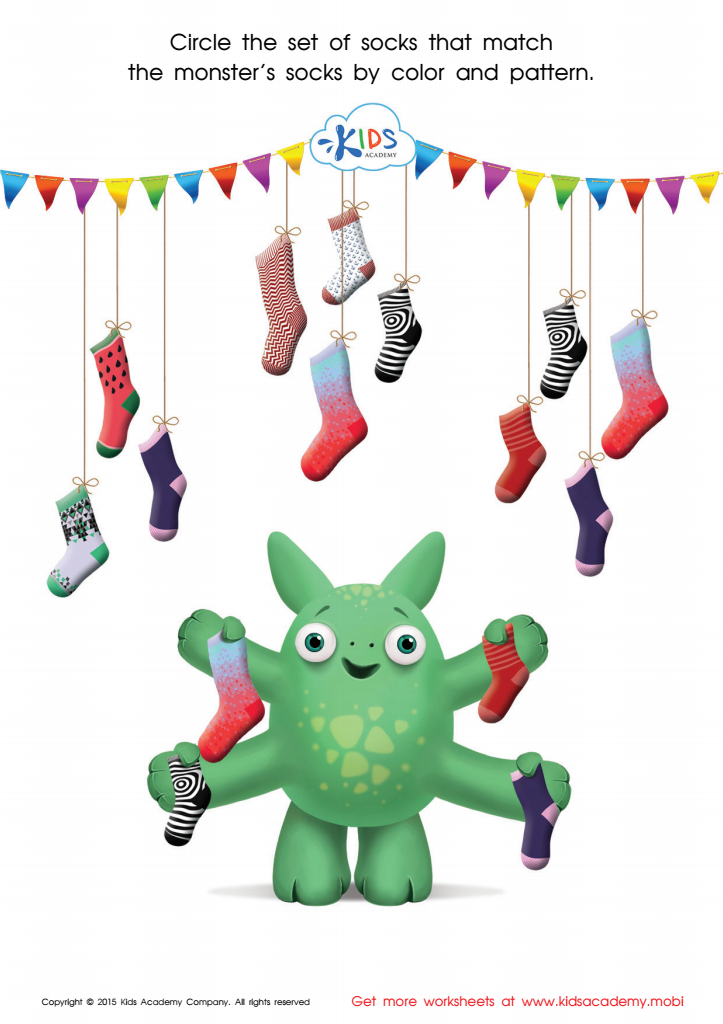

Sort the Monster's Socks Worksheet
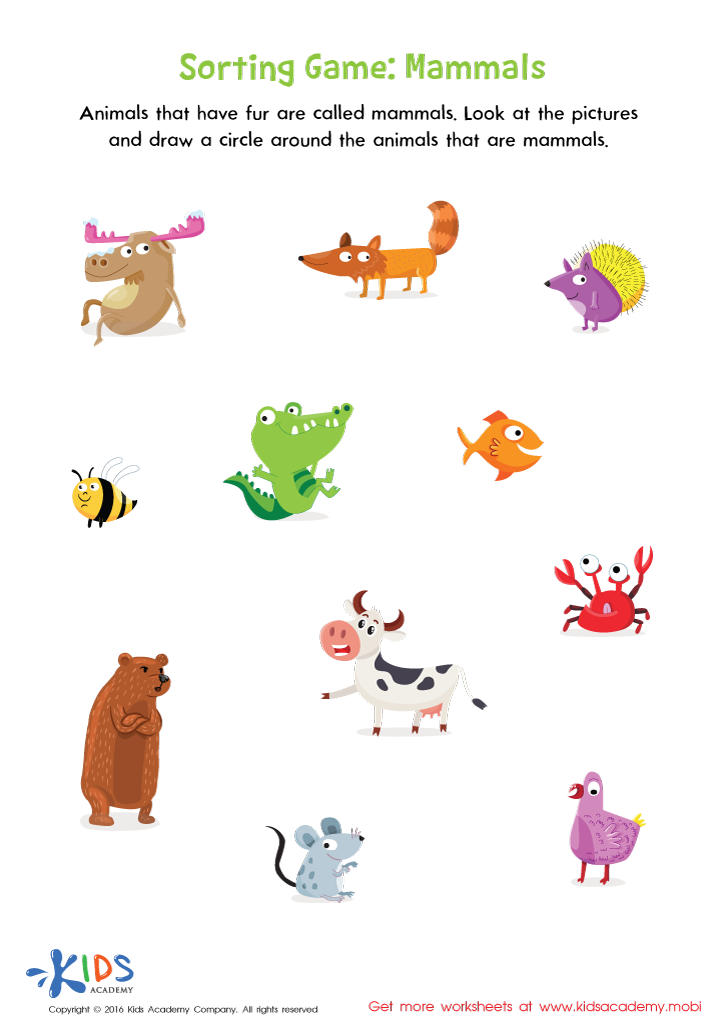

Mammals Sorting Worksheet
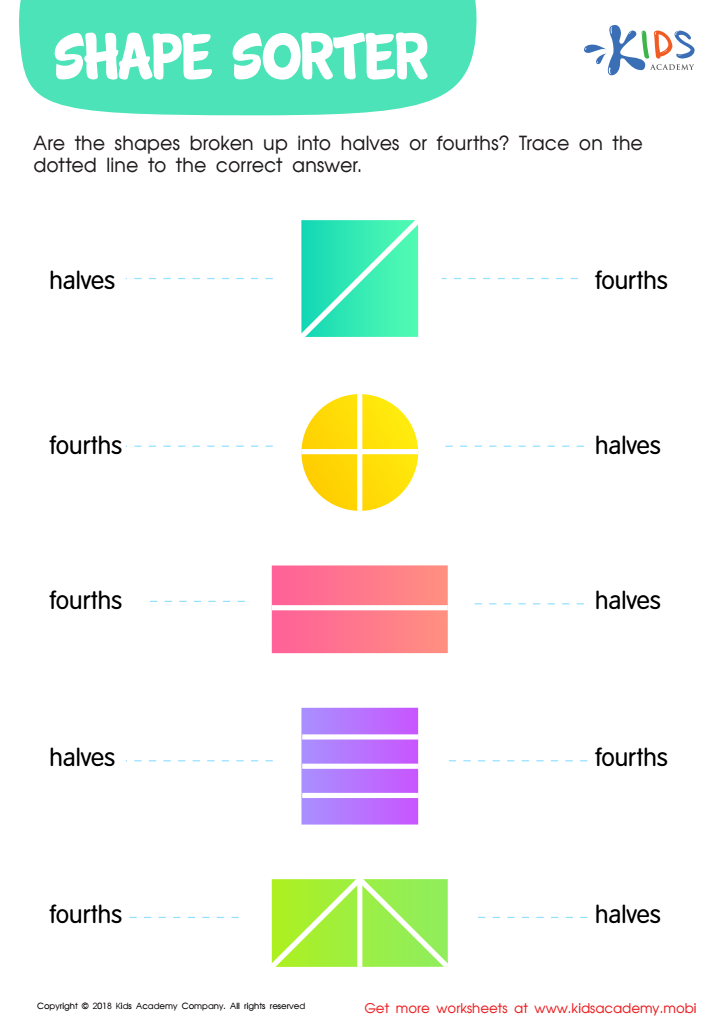

Shape Sorter Worksheet
Parents and teachers should recognize the importance of sorting skills for young children aged 3-9, as these abilities form the cornerstone of cognitive development and everyday problem-solving competencies. Sorting involves organizing items based on specific categories or attributes, such as color, shape, size, or type. This fundamental skill enhances a child's ability to comprehend and execute complex patterns, a foundational skill in mathematics and logical reasoning.
By introducing an extra challenge in sorting tasks, children learn perseverance, attention to detail, and critical thinking. These tasks stimulate cognitive flexibility, helping young minds to adapt to new concepts and environments. Moreover, sorting is closely linked to language development as children learn to categorize and name different objects.
Practicing advanced sorting also lays the groundwork for academic subjects like science and literacy where classification and organization are crucial. It prepares children for more structured learning and encourages independence and self-directed learning as they solve problems independently. Additionally, engaging in group sorting activities fosters social skills including cooperation, communication, and patience.
Overall, consistently developing sorting skills prepares young children for future educational success and day-to-day activities, making it an essential focus for early childhood education.
 Assign to My Students
Assign to My Students















